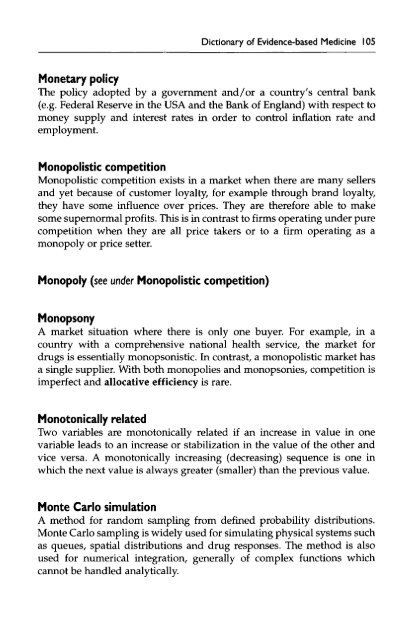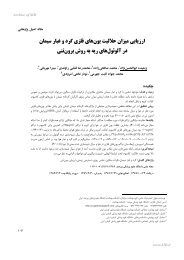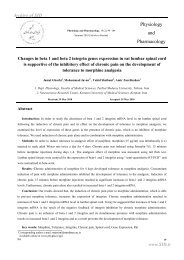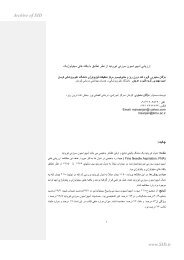Dictionary of Evidence-based Medicine.pdf
Dictionary of Evidence-based Medicine.pdf
Dictionary of Evidence-based Medicine.pdf
You also want an ePaper? Increase the reach of your titles
YUMPU automatically turns print PDFs into web optimized ePapers that Google loves.
<strong>Dictionary</strong> <strong>of</strong> <strong>Evidence</strong>-<strong>based</strong> <strong>Medicine</strong> 105<br />
Monetary policy<br />
The policy adopted by a government and/or a country's central bank<br />
(e.g. Federal Reserve in the USA and the Bank <strong>of</strong> England) with respect to<br />
money supply and interest rates in order to control inflation rate and<br />
employment.<br />
Monopolistic competition<br />
Monopolistic competition exists in a market when there are many sellers<br />
and yet because <strong>of</strong> customer loyalty for example through brand loyalty,<br />
they have some influence over prices. They are therefore able to make<br />
some supernormal pr<strong>of</strong>its. This is in contrast to firms operating under pure<br />
competition when they are all price takers or to a firm operating as a<br />
monopoly or price setter.<br />
Monopoly (see under Monopolistic competition)<br />
Monopsony<br />
A market situation where there is only one buyer. For example, in a<br />
country with a comprehensive national health service, the market for<br />
drugs is essentially monopsonistic. In contrast, a monopolistic market has<br />
a single supplier. With both monopolies and monopsonies, competition is<br />
imperfect and allocative efficiency is rare.<br />
Monotonically related<br />
Two variables are monotonically related if an increase in value in one<br />
variable leads to an increase or stabilization in the value <strong>of</strong> the other and<br />
vice versa. A monotonically increasing (decreasing) sequence is one in<br />
which the next value is always greater (smaller) than the previous value.<br />
Monte Carlo simulation<br />
A method for random sampling from defined probability distributions.<br />
Monte Carlo sampling is widely used for simulating physical systems such<br />
as queues, spatial distributions and drug responses. The method is also<br />
used for numerical integration, generally <strong>of</strong> complex functions which<br />
cannot be handled analytically.










